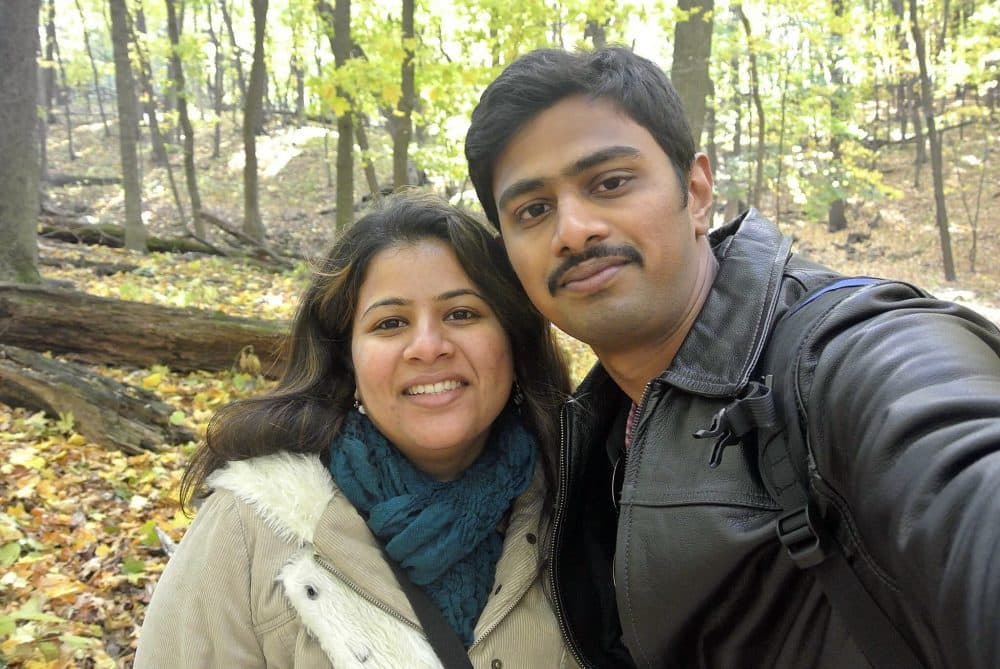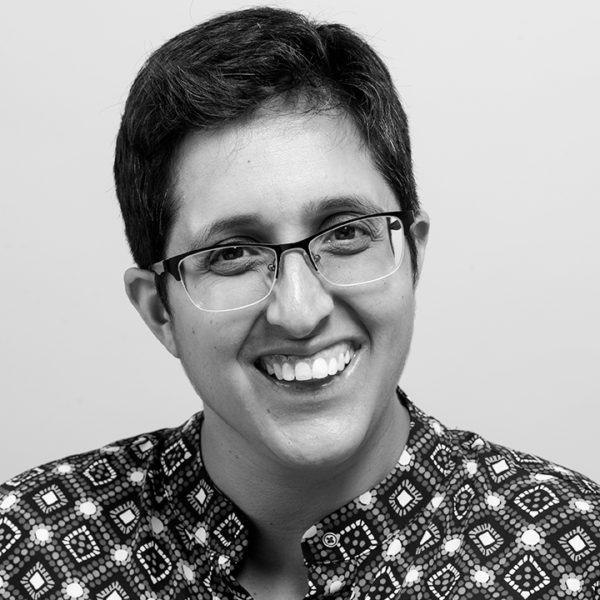Advertisement
COMMENTARY
My Parents May Be 'Acceptable' Immigrants, But None Of Us Is Safe

Last summer, I got into a heated debate on social media with a childhood friend about Donald Trump's immigration policies. My friend couldn't understand why I felt personally affronted by Trump's assault on immigrants, even though I am the child of immigrants myself. "He's not talking about your kind of immigrant, Neema," wrote my one-time basketball teammate, now a retired police officer. The implication was clear: He saw my parents as “acceptable” immigrants because they came to the United States with legal documentation, using the appropriate process.
What my friend didn’t know was that my father arrived in the U.S. in 1969, only four years after the passage of the Hart-Celler Act, which nullified the Immigration Act of 1924. For more than 40 years, Asians like my father had been barred from entering the country by legislation that had some of the same motives as current immigration policy: fear of the unknown and the preservation of both jobs and white supremacy.
My own knowledge of this history makes me profoundly unsettled by talk of Muslim bans and Mexican walls. But when I speak out against the obvious racism and religious discrimination of these policies, I’m often met with comments like, "No one is talking about banning legal immigrants," or, "We are only deporting criminals." These comments allow people like my old friend to navigate their own cognitive dissonance: "I am supporting anti-immigrant policies. Neema and her family are immigrants, and I know they are good people. So this policy is separate from them." But this rationale doesn’t absolve the guilt of people who embrace anti-immigrant rhetoric.
It's the narrative that made my brown-skinned, heavily-accented father tape a huge American flag to our front door after 9/11.
Nor have these assurances ever rung true for me. Not as a child, when my brown skin attracted racial epithets of all ethnic origins, because the people hurling the insults didn't care where my family was from. Not after Sept. 11, when Balbir Singh Sodhi was killed at his gas station job by a white supremacist who told his friends he was going out to shoot some "towelheads," and offered no apologies afterwards, simply saying, "I stand for America all the way." Not after the mass shooting at the Sikh temple in suburban Milwaukee in 2012. And not after Friday, when two Indian engineers were shot, one fatally, at a bar in Kansas City by a white man screaming, "Get out of my country!"
"Not your kind of immigrant" — whether the distinction is between Hindu and Muslim or documented and undocumented — is also a false assurance given by the majority to keep minoritized communities at odds. It's the narrative that led Chinese-Americans to wear badges distinguishing themselves from Japanese-Americans after Roosevelt's 1942 executive order requiring internment of all citizens of Japanese descent. It's the narrative that made my brown-skinned, heavily-accented father tape a huge American flag to our front door after 9/11. And while I understand that embracing the narrative is a form of self-preservation, I also know that the American flag we wrap ourselves in is far from bulletproof.
A person who has been taught to see brown skin as a threat doesn't care about my papers, my religion or my country of origin.
In the month after Trump's election, the Southern Poverty Law Center collected reports of more than 1,000 hate incidents in the U.S. Latent racism, xenophobia, Islamophobia, homophobia and transphobia have all been given explicit permission to surface by leaders who condone, and even espouse, such beliefs.
A discourse that pits "acceptable" immigrants versus "unacceptable" ones makes all of us less safe. It makes my brown-skinned self frightened for my own physical safety, for the safety of those I love and for the safety of those I don't even know. A person who has been taught to see brown skin as a threat doesn't care about my papers, my religion or my country of origin. To people like Adam Purinton, Wade Michael Page and Frank Silva Roque, distinctions among immigrant communities are irrelevant. Brown is brown. Brown is outsider. Brown is threat. And blood is on the hands of those who foment anti-immigrant rhetoric.
On hearing the news of the Kansas City shooting, my mother, who moved to the United States from India more than 45 years ago, reacted by unconsciously quoting Martin Luther King Jr.: "Where do we go from here?" I don't know how to answer to her question, but I know that the fabric of our indivisible nation is being undone, one thread at a time, by our language of division.
